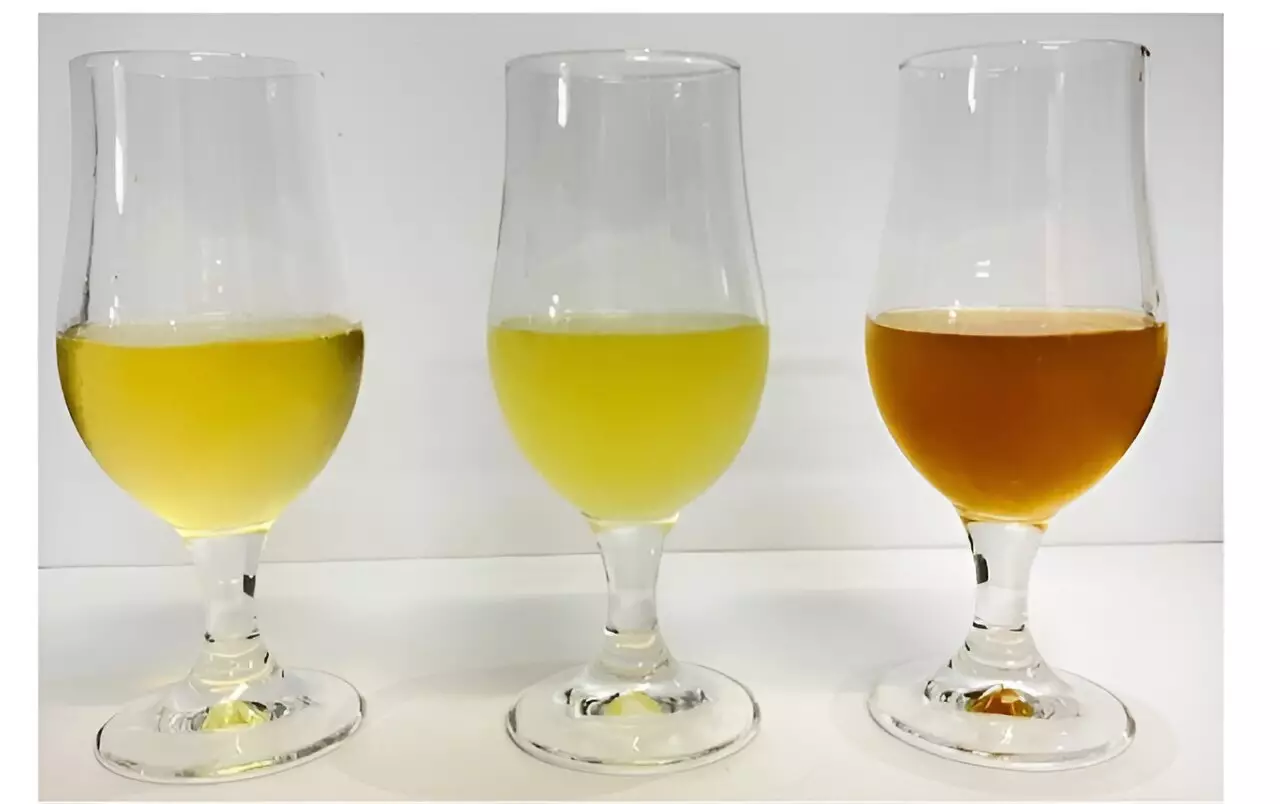Kombucha has gained immense popularity in recent years, often celebrated for its effervescent quality and distinct sour flavor. Traditionally brewed by fermenting sweetened tea with a SCOBY (symbiotic culture of bacteria and yeast), this drink is not just refreshing but also touted for its potential health benefits. The fermentation process enriches the tea with bioactive compounds like flavonoids, phenolics, and anthocyanins, which are believed to possess antioxidant and anti-inflammatory properties. However, as consumer interest in diverse health drinks expands, the focus is shifting to alternative brewing methods using different plant-based ingredients, paving the way for innovative variations on the classic kombucha recipe.
Recent research published in ACS Agricultural Science & Technology delves into the biochemical and flavor profiles of kombucha-like beverages crafted from apple and passion fruit juices. This study seeks to determine whether these alternative brews can provide the same—or even enhanced—nutritional benefits and taste experiences associated with traditional kombucha. As kombucha continues to dominate the health drink market, it is crucial to examine the potential of other ingredients that could offer distinct flavors and health benefits.
In the study, researchers, led by Socorro Vanesca and Frota Gaban, embarked on a fermentation journey using fresh apple and passion fruit juices alongside traditional tea. Over a span of 10 days at room temperature, they allowed the juices to ferment, monitoring the levels of various bioactive compounds present in each concoction. The results revealed that the apple-derived beverage boasted the highest concentration of flavonoids, a class of polyphenolic compounds beneficial for health. Meanwhile, both kombucha and the apple beverage exhibited comparable levels of phenolic compounds, while the fruit beverages lagged behind.
To further understand the appeal of these beverages, the researchers engaged a panel of 12 volunteer tasters to evaluate the drinks based on their color, aroma, and flavor profiles. The findings were intriguing: the apple drink showcased an amber hue, followed by a bright yellow for the passion fruit, and a golden appearance for the kombucha. Tasters noted that the aroma was more pronounced in the fruit-based drinks, leading to a stronger fruitiness compared to the more subdued scent of the tea. However, the passion fruit drink’s bitterness set it apart, drawing mixed reviews compared to the sweeter profiles of the apple and kombucha drinks. Participants tied in their admiration for apple and kombucha, highlighting the apple infusion’s potential as a viable rival in the health drink category.
The team’s findings suggest that fermented apple juice—and likely other fruit-based concoctions—may hold great promise as alternatives to traditional kombucha. With the apple beverage scoring high in both nutritional content and taste, it represents just the beginning of exploring plant-based fermentation. Future investigations will likely examine a broader spectrum of fruits and perhaps even vegetables, assessing their unique flavors and health benefits. As consumers increasingly seek variety in their health diets, the evolution of fermented beverages might just be at the cusp of a revolution, moving beyond the conventional confines of tea-based brews and embracing a colorful array of fruit flavors.

